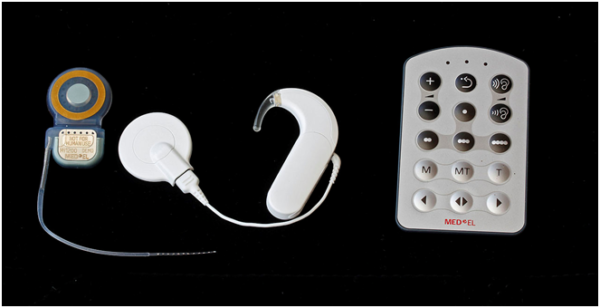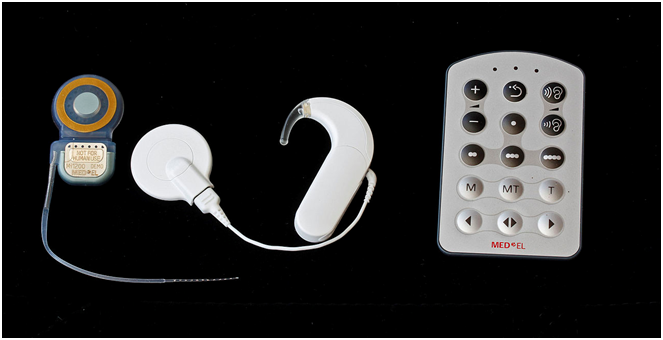
Getting a cochlear implant (CI) helps deaf people improve their hearing. The surgery is not meant to restore your sense of hearing, but to improve it so you can have a simpler life experience. A team of professionals will assess your condition and decide whether or not the procedure will be suitable for you. Also, they will advise you on what to expect.
The procedure involves the implanting of electrical devices that convert sound to electrical stimulation. That way, a deaf person can have the sensation of hearing. The procedure has been highly controversial, although it still comes with its advantages.
How do the Implants Work?
The cochlear is the inner part of the ear and is filled with fluid. It also has small hairs that move in response to sound waves.
Each of these hairs responds to sounds at specific frequencies, and the signals are transferred to the brain for interpretation. Deaf people have this system damaged, but the implants work similarly. The surgery will involve the insertion of a small sound processor that converts noises to digital stimulations.
The converted signals are then sent to a cochlear in which many electrodes have been implanted in the place of the tiny hairs. Each of these electrodes will respond to specific sound frequencies, and the results are interpreted in the brain.
Pros of undergoing a CI Surgery
1) Improves your Hearing
Once you find a doctor, you will be advised on how effective the implants will be. Cochlear Implants improve your hearing, even though they don’t fix it completely. In an environment with little noise, you will enjoy communicating with people without necessarily having to use sign language. In addition to the implants, reading lips will make communication easier.
2) Helps to Prevent Danger
Sounds in nature, on the streets, and even at home help to signal danger. For example, a car coming towards you will honk in an attempt to get your attention. With the implants, you will stand a better chance of getting the signal and potentially save your life.
3) Allows you to enjoy Melodic Sounds
After undergoing a cochlear implant surgery, you will be able to relax to the music of your choice. Sounds in nature will also improve your general life experience.
4) Can give you access to Education
People with complete loss of hearing have limited opportunities in education and even at work. Many schools will charge you a lot more if you are deaf since the condition warrants special attention.
5) Can allow you greater Employment Opportunities
Some employment opportunities may not suit deaf people well since the condition might affect their performance in the given roles. Some improvement in your hearing will, therefore, allow you to live a complete life with more opportunities.
Cons of undergoing CI Surgery
1) Does not work for Everybody
The procedure is not recommended for people who were born deaf since they will find it harder to find the meaning of different sounds.
However, it still does not work well for everyone who became deaf at some point in their lives. It is still hard for doctors to predict the success of their procedures. Some work incredibly well, while others become almost useless. That said, most of the procedures have been successful.
2) It might make People forget about your Condition
Some people will imagine that your condition is gone and that you are now normal, just because you got a CI surgery. That will affect your interactions and general life experience since they will stop making efforts in effectively getting messages across to you. In fact, many patients can only get the sound signals in silent rooms.
3) Is very Expensive
Cochlear Implants are very expensive and are well beyond what most people can afford. There is also a good chance that the implants will be a disappointment and all your money will go to waste.
Also, you will need to continuously change the batteries, replace the wires, and cater to many maintenance costs. It is worth noting that some insurance programs cover the cost of the surgery.
4) The Technology is still underdeveloped
The technology used in this procedure is quite poor. If there are many background noises, a person with CI will not be able to engage in a conversation. This is because the electrodes can send signals to the brain through the same neural populations.
As a result, a lot of confused interpretation will occur in the brain, therefore, making communication harder. That said, scientists are working on improving the technology, and we should see improvements in the near future.
5) Requires Maintenance
The batteries and wires need to be occasionally changed. You also need to remap the sound processor.
Conclusion
Sean Forbes is a 35-year old man who makes rap music, despite being deaf. He has been deaf since he was just a few months old, but none of that is stopping him from living his dream.
Cochlear implants are highly controversial among deaf people. The technology has helped many deaf people experience near-normal hearing once again, although the number of unsuccessful procedures is still very high. Ideally, you should go for a cochlear implant surgery if you spent some years of your life with normal hearing.
